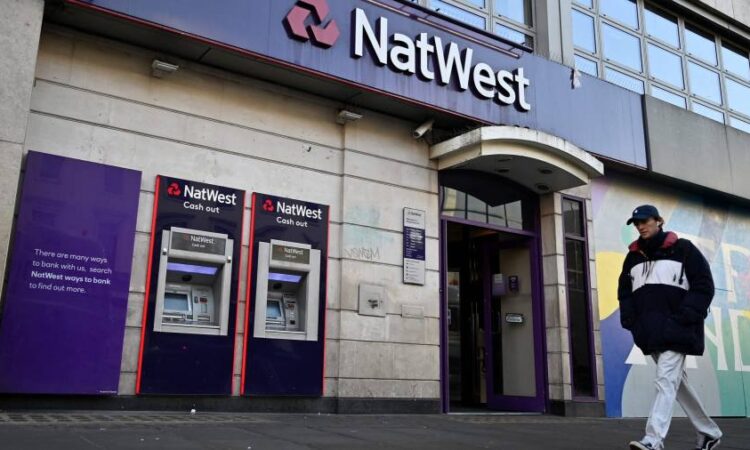
Two UK companies said on Tuesday they would limit crypto payments for customers, in a move that piles further pressure on a digital asset industry rapidly losing regulated financial partners.
NatWest, one of the UK’s largest consumer banks, announced restrictions on consumers sending money to cryptocurrency exchanges to “help protect consumers losing life changing sums of money”.
Paysafe, an online payments provider, also said it would wind down services to UK customers of Binance, the world’s largest crypto exchange.
The moves represent a further fraying of the connections between crypto and regulated institutions following the demise of US trio Silicon Valley Bank, Silvergate Capital and Signature.
Banks such as Signature and Silvergate have long been established as popular routes for crypto companies to convert digital tokens to hard currency and held digital asset deposits on behalf of crypto companies. US authorities this year have repeatedly warned banks about the risks associated with crypto business. But while the banking crisis has focused on the US, several of the UK’s largest banks have started to increase the pressure on crypto investors.
NatWest has imposed a £1,000 daily limit and £5,000 30-day limit on payments sent to crypto exchanges and follows HSBC’s announcement last month that it would prohibit customers from purchasing cryptocurrencies with their credit cards.
“This looks like the start of a co-ordinated crackdown on crypto, coming from the UK banking sector. We’ve already seen this strategy take shape in the United States,” said one former HSBC employee.
Paysafe, which provides British pound deposit and withdrawal services to Binance, ended these services on Monday to new British customers of Binance, and will halt services to all UK users by late May. The company said that “the UK regulatory environment in relation to crypto is too challenging” and its decisions was “taken in an abundance of caution”.
A month ago Binance suspended USD payments on the exchange without providing a reason for the decision.
“This is the second domino to fall and unlikely the last, as now two top financial markets have been closed off to Binance,” said Jo Ritcey-Donohue, founder of JRD Law, a US law firm. Binance remains active in other countries in Europe, such as France, and in South America.
Binance said Paysafe’s decision would cover less than 1 per cent of its users. Previously it also said the suspension of dollar payments would impact less than 0.01 per cent of its monthly active users.
The failures of Signature and Silvergate have sparked a hunt for new banking partners willing to accept crypto business.
“The longer it takes a US bank to declare an openness to crypto deposits, the more likely it is that firms could choose somewhere overseas with more regulatory clarity and easier fiat payment rails,” said Conor Ryder, an analyst at Kaiko Research, a data company.
“Regulatory clarity in Europe . . . paints a stark contrast to the ambiguity in the US, with firms facing new regulatory headwinds seemingly every day. This creates an increasingly challenging environment for the operations of any crypto organisation.”
Earlier this week, HSBC bought SVB’s UK unit for £1 in a rescue deal that sees the bank take in more than 3,000 of the subsidiary’s customers.



